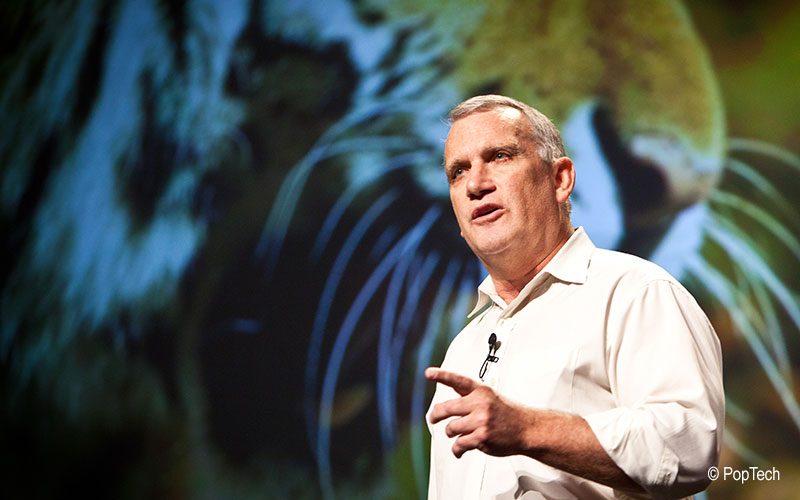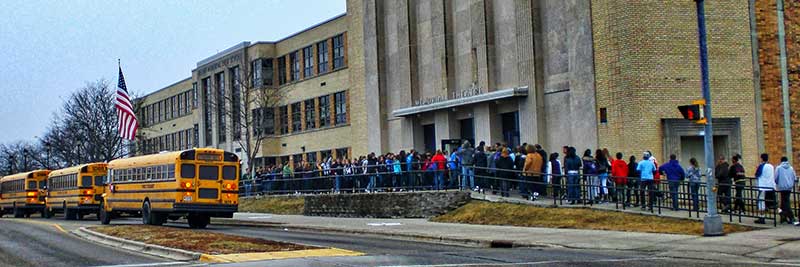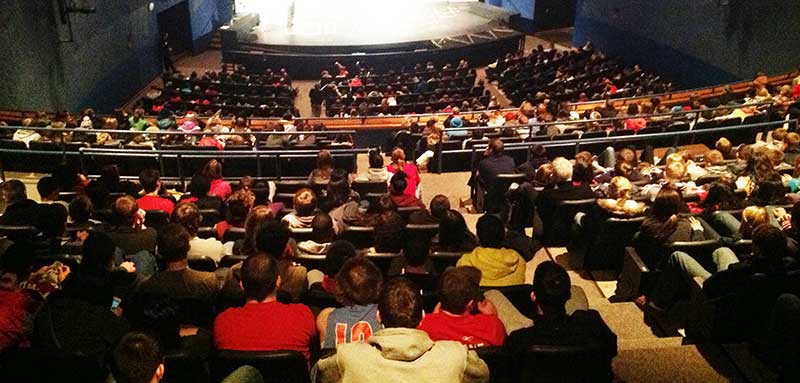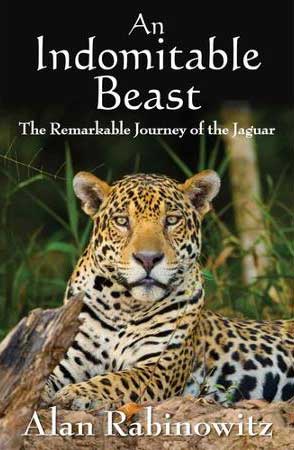2016 RCAS Distinguished Explorer
Alan Rabinowitz, Ph.D., 1953-2018
To commemorate the life and work of the late Dr. Alan Rabinowitz, the Roy Chapman Andrews Society has made a $250 memorial donation to Panthera.
 2016 Distinguished Explorer
2016 Distinguished ExplorerAcclaimed Zoologist Known for his Work with Jaguars and other Big Cats to Receive 2016 Roy Chapman Andrews Society Distinguished Explorer Award
Alan Rabinowitz, sometimes called the “Indiana Jones of Wildlife Conservation,” has been selected to receive the 2016 Roy Chapman Andrews Society Distinguished Explorer Award.
Now CEO of Panthera, the global wild cat conservation organization, Dr. Rabinowitz has pursued twin passions with equal intensity for more than three decades: the study of large cats and the preservation of their natural habitats.
Dr. Rabinowitz has traveled the world on behalf of wildlife conservation and over the years has studied jaguars, clouded leopards, Asiatic leopards, tigers, Sumatran rhinos, bears, leopard cats, raccoons, and civets.
The upcoming visit by Rabinowitz marks the first time the Society has honored a zoologist, the field of study likewise pursued by Andrews.
Rabinowitz has explored with an intrepid spirit akin to that of Andrews, having tracked predatory cats on three continents, survived the crash of a small plane, and negotiated with dictators in his pursuit of science and conservation.
He and Andrews have explored some of the same territory in Asia, a continent where Andrews racked up so many adventures that persistent rumors credit him with inspiring the adventurous spirit of Hollywood’s Indiana Jones character.
Presentation by Alan Rabinowitz PhD, 2016 Distinguished Explorer
A celebratory reception and dinner honoring Dr. Rabinowitz will be held immediately following the acceptance lecture at
Pearsons Hall on the Beloit College Campus
This is a popular event and is known to sell out. Advance reservations and tickets are required for this event.
RECEPTION DINNER DETAIL AS FOLLOWS
Friday, April 15, 2016

Dr. Rabinowitz will share stories and discoveries from his work while visiting Beloit to accept his award. Earlier in the day he will present a program specifically geared for students titled “Saving the World’s Big Cats”. This presentation is coordinated with area schools and is held at Beloit Memorial High School.

Among Rabinowitz’s most notable achievements is the conceptualization and implementation of what is known as the Jaguar Corridor, a series of biological and genetic corridors stretching from Argentina to Mexico that preserves the natural migration path of this species and promotes its genetic diversity.
He has likewise persuaded the leaders of numerous Asian countries to conserve vast areas for the protection of predatory cats. His scientific research served as the foundation for these bio-political collaborations by demonstrating how the preservation of the natural predatory food chain—with big cats at its apex—also preserves an ecological balance that benefits neighboring human populations.
Without the presence of large cat predators, other species thrive unchecked, leading to everything from the destruction of valuable vegetation to an increased risk that contagious diseases can jump from wild species to infect humans (such as has happened with AIDS and Ebola).
After earning a master’s degree in zoology and a doctorate in wildlife ecology from the University of Tennessee in 1981, he has spoken persuasively on their behalf ever since. Toward that end, in 2006 he joined Panthera, the global wild cat conservation organization, as their CEO.

 The author of more than 100 scientific and popular articles Alan Rabinowitz has also shared his research and personal stories in eight books for the general public, including two titles published last year.
The author of more than 100 scientific and popular articles Alan Rabinowitz has also shared his research and personal stories in eight books for the general public, including two titles published last year.
An Indomitable Beast: The Remarkable Journey of the Jaguar and a work for children called A Boy and a Jaguar.
Rabinowitz speaks often about how a childhood disability—his debilitating stutter—led him to become a friend and ally of big cats.
Although unable to converse naturally with humans, he was able to talk to animals and made frequent visits as a child to the Bronx Zoo. Rabinowitz promised the big cats he encountered there during his youth that he would, if he ever found his voice, become their advocate, since they too could not talk.